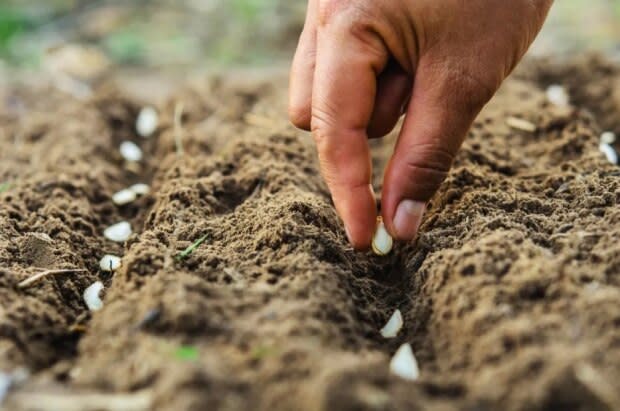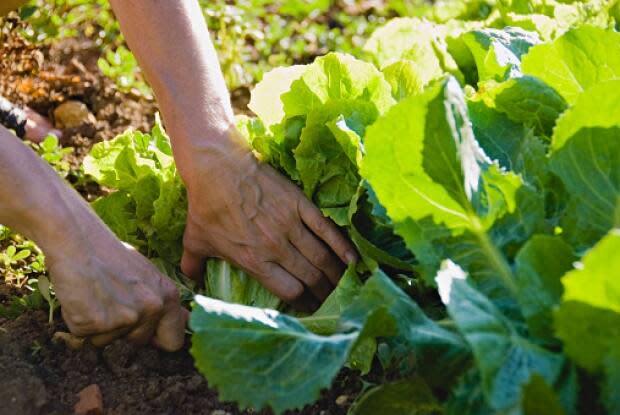Top tips on growing your own food
For many of us, this pandemic has kindled a latent desire to provide for ourselves and our loved ones.
Food insecurity, and worries over fluctuating supply, has many of us baking our own bread and hoping to grow some of our own foods.
Telsing Andrews, the Ottawa gardener who started the Edible Ottawa Gardens group on Facebook, has seen hundreds of new followers join the group on a weekly basis this spring.
"Everybody's interested in this stuff right now. And that's great," said Andrews.

Starting a new garden, or expanding the one you already have, can offer more than just fruit and vegetables, she said. It can provide learning opportunities for your children and a lot of soothing time to help deal with stress.
Mohamed Ibn Kala, a professor at Carleton University, has had more time to tend to his 'no-dig' garden in south Ottawa. And he has also been sharing his gardening tips on the Facebook group.
Both Ibn Kala and Andrews were guests on All In A Day this week, and they had these essential tips for starting your own edible garden:
1. Don't sweat the critters and 'weeds'
Weeds and wildlife are part of the natural world around us. Animals are a sign that our gardens are healthy and welcoming. Think of your garden as something that provides for both your family and nature too. So long as the weeds aren't invading your crop or providing too much shade, they're fine, said Andrews. Picking them away is always better than trying to kill them off.
2. Don't sweat the budget
If you have an interest in raised beds, for instance, but don't want to fork out money for cedar boxes, just raise the soil into mounds in order to create the same effect. Large posts are great for greens, tomatoes and peppers. Repurposing coffee tins, drink bottles and tomato tins by poking holes in the bottom can provide a very inexpensive yet Tuscan-inspired garden look for your patio or deck. One neat hack Andrews suggests, if you don't mind the look of it, is to take your garden soil bag and cut into it and plant directly into the soil bag, keep well watered and add some slits in the bottom for drainage.
3. Start with the tried and true
Some types of veggies are just tougher to grow and require more patience and practice, but other plants are more forgiving and will provide a higher shot at success: fresh beans, tomatoes, potato starts, kale and lettuce to name a few. Plants with larger seeds like squash and pumpkin are great if you're wanting to get the kids involved.
4. Know your exposure
You'll want to avoid some plants such as eggplant or peppers if you don't have a southern or western exposure or if you have a giant shady tree nearby. Your garden centre and the seed packs will tell you which are appropriate for partial shade.
5. Know your garden size

Sometimes we overplant because the plants we start with are so small at first, but they explode and will take over if they don't have enough space. Be sure to give pumpkins and squash a lot of room to spread. Cabbage and cauliflower can get really huge too, said Andrews.
6. Get floral
Think of your edible garden as part of the whole yard. Planting flowers such as marigolds to encourage pollination is a great idea. And while you're at it, remember your front yard can be great for edible crops too, not just the backyard.
7. Hydrate responsibly
Nothing like poking your thumb in the ground to tell whether your plants need water. Your raised beds and potted plants will dry out faster than plants growing directly in the ground. If your plant looks limp and dry, chances are it needs a drink.
8. It's never too late but it might be too early
Never mind what day Victoria Day falls on, if it's a frost intolerant plant don't plant outside before May 24. There's been a trend toward cooler weather late into the spring over the past five years, according to Andrews, so best to wait a week and avoid frost damage.


